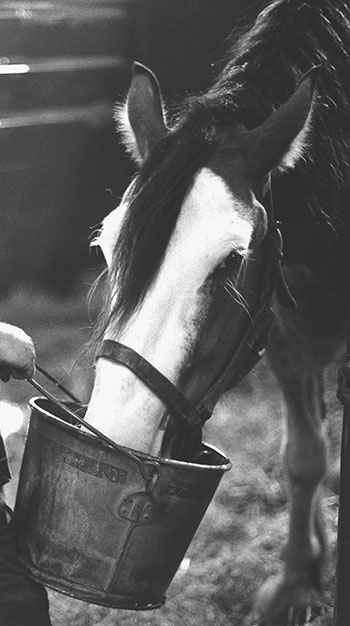American Farriers Journal
American Farriers Journal is the “hands-on” magazine for professional farriers, equine veterinarians and horse care product and service buyers.
Countless horse supplements and feeds exist, each claiming to be the “best,” the “optimum,” “your assurance of maximum performance” or featuring a slogan like “insurance for perfect health.”
These nutritional supplements and feeds seem to assume that the most important horse nutrients are always found in adequate supply and are of sufficient quality.
What is the horse’s most important nutrient? Water! Good old-fashioned clean, pure water; no magic elixir, no synthetic performance enhancing substance. Just water.
Some 60 to 80 percent of the daily nutritional intake of horses is represented by water, which accounts for 70 to 73 percent of the animal’s total body mass. A horse’s requirements for water are proportional to the animal’s energy consumption.
As farriers know, water requirements increase above normal levels during exposure to hot environments. This increases water loss through the animal’s sweating and panting.
For a horse, drinking water actually has a higher priority than eating. Horses that voluntarily eat normal amounts of feed usually have satisfactory water intakes.
Since water quality directly affects liquid consumption, and since the first effect of voluntary or involuntary water restriction is to reduce the feed consumption and thus performance or growth efficiency, the importance of a good supply of high quality water becomes essential. If a horse doesn’t eat the suggested amount of a particular feed or ration, various nutrients — including those required for proper hoof growth and function — will be in shorter supply than intended.

WATER PRIORITY…